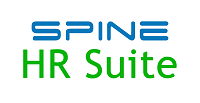Description

KeyPay

Spine Payroll
Comprehensive Overview: KeyPay vs Spine Payroll
KeyPay and Spine Payroll Overview
a) Primary Functions and Target Markets
KeyPay:
- Primary Functions: KeyPay is a cloud-based payroll and workforce management software. It facilitates payroll processing, timesheet management, leave management, superannuation, and automatic compliance updates. KeyPay emphasizes automation to reduce manual work and errors in payroll processing.
- Target Markets: KeyPay generally targets small to medium-sized businesses (SMBs) across various industries. It is particularly popular in Australia and the UK, where it addresses the complex payroll needs by adhering to each country's specific compliance requirements. Accounting firms and other professional service providers also use KeyPay to manage payroll for multiple clients.
Spine Payroll:
- Primary Functions: Spine Payroll offers a full-suite HR and payroll management system, primarily focusing on payroll computation, statutory compliance, attendance, leave management, and employee self-service. Spine Payroll also provides features for tax calculations, electronic filing, and benefits administration.
- Target Markets: Spine Payroll is often utilized by medium to large enterprises in India. It is designed to handle more complex payroll requirements and can accommodate a larger volume of employees. Industries such as manufacturing, healthcare, and education commonly adopt Spine Payroll for its comprehensive handling of statutory regulations and reporting needs.
b) Market Share and User Base
KeyPay:
- While specific market share statistics are not always available, KeyPay has established a significant presence in Australia and the UK. Its user base primarily consists of small and medium-sized enterprises, as well as accounting firms managing payroll for multiple clients. The user-friendly system and robust compliance features have resulted in steady growth within these regions.
Spine Payroll:
- Spine Payroll enjoys a strong market presence in India, catering to medium and large enterprises. It is regarded as a comprehensive solution that can scale with the growing needs of larger organizations. Although its global market presence is not as strong as that of pioneering payroll software like ADP or SAP SuccessFactors, its specialized approach for the Indian market has made it a preferred choice domestically.
c) Key Differentiating Factors
KeyPay:
- Cloud-Based Solution: KeyPay offers a completely cloud-based solution, which allows for seamless access and updates. This is particularly beneficial for accounting firms managing payroll for multiple clients.
- Automation and Integrations: KeyPay emphasizes automation with features such as automated payroll runs and real-time compliance updates. It also offers integrations with various accounting software like Xero and QuickBooks, enhancing its functionality.
- Global Compliance: KeyPay stands out for its focus on compliance in different regions, particularly in Australia and the UK, consistently updating to reflect changes in laws and regulations.
Spine Payroll:
- Customization & Scalability: Spine Payroll offers extensive customization options, which can be a critical factor for large organizations with unique payroll needs. It also scales well for businesses with a large number of employees.
- Focus on Indian Market: With its in-depth understanding of the Indian payroll landscape, including statutory compliance, scholarships, allowances, and detailed tax calculations, Spine Payroll offers comprehensive local features that cater specifically to Indian businesses.
- HR Suite Integration: Beyond payroll, Spine offers a broader HR management suite that integrates various HR functions into a single platform, providing a more extensive range of HR management capabilities.
In conclusion, the choice between KeyPay and Spine Payroll largely depends on the specific needs of the business, its size, and the geographical region in which it operates. KeyPay offers strength in automation and compliance in countries like Australia and the UK, while Spine Payroll provides detailed customization and compliance features for the Indian market.
Contact Info

Year founded :
2020
Not Available
Not Available
Not Available
Not Available

Year founded :
Not Available
Not Available
Not Available
Not Available
Not Available
Feature Similarity Breakdown: KeyPay, Spine Payroll
When comparing payroll software like KeyPay and Spine Payroll, it's important to assess their core features, user interfaces, and any unique characteristics. Here's a breakdown based on these criteria:
a) Core Features in Common
-
Payroll Processing:
- Both KeyPay and Spine Payroll offer automated payroll processing, which helps in calculating wages, tax deductions, and other payroll-related computations.
-
Compliance Management:
- They ensure compliance with local labor laws and regulations, including tax calculations and filing requirements.
-
Employee Self-Service:
- Each platform includes a self-service portal where employees can access payslips, tax forms, and update personal information.
-
Leave Management:
- Both software solutions provide functionality to manage employee leave requests and approvals.
-
Reporting and Analytics:
- Both platforms offer robust reporting features to generate payroll summaries, financial reports, and compliance reports.
-
Integration Capabilities:
- They typically integrate with other HR and accounting systems to streamline operations and data management.
b) User Interface Comparison
-
KeyPay:
- KeyPay often features a clean, user-friendly, and intuitive interface with a focus on simplifying payroll tasks.
- The dashboard typically provides easy navigation and quick access to key features, such as running payroll and managing employees.
-
Spine Payroll:
- Spine Payroll's interface may appear slightly more traditional, with a focus on detailed data entry and comprehensive functionality.
- It often provides extensive menu options that allow users to drill down into specific features and data metrics.
While both platforms aim for ease of use, KeyPay might be perceived as more modern and streamlined, whereas Spine Payroll provides a more detailed and menu-driven experience.
c) Unique Features
-
KeyPay:
- Customizable Workflows: KeyPay is known for its flexible and customizable payroll workflows, which can be tailored to different business needs and industries.
- Cloud-Based Solution: As a fully cloud-based platform, KeyPay ensures accessibility from anywhere with an internet connection, which is particularly beneficial for remote or distributed teams.
-
Spine Payroll:
- Industry-Specific Solutions: Spine Payroll often provides solutions tailored to specific industries, which can be beneficial for organizations with specific compliance or operational requirements.
- Detailed Statutory Reporting: Spine is known for its extensive statutory compliance and reporting capabilities, which can be a strong point for businesses with complex regulatory needs.
Conclusion
Both KeyPay and Spine Payroll have robust core features to support payroll processing needs, but they differ in interface styles and specific unique functionalities. KeyPay's strength lies in its modern, cloud-based, and customizable workflows, while Spine Payroll excels in detailed compliance reporting and industry-specific solutions. Businesses should choose based on which features and user experience best match their operational requirements.
Features

Not Available

Not Available
Best Fit Use Cases: KeyPay, Spine Payroll
KeyPay and Spine Payroll are both payroll software solutions tailored to different business needs and environments. Here's a breakdown of the best-fit use cases for each:
KeyPay
a) Best Fit for KeyPay:
-
Small to Medium Enterprises (SMEs): KeyPay is particularly strong in servicing SMEs that require a straightforward, cloud-based payroll solution that can streamline their payroll processes without the need for extensive in-house expertise.
-
Businesses with Complex Payroll Needs: It's suitable for businesses that have complex payroll requirements, such as variable pay rates, different pay schedules, or complex award interpretations, as KeyPay offers automation in these areas.
-
Businesses in Specific Regions: Given its origin and focus, KeyPay is particularly tailored for businesses operating in Australia, New Zealand, and the UK. It’s designed to handle the specific legislative requirements in these regions.
-
Companies Seeking Integration Capabilities: Its ability to integrate with various other platforms like time and attendance, HR software, and accounting systems makes it ideal for businesses seeking seamless operations across multiple process areas.
d) Catering to Different Industries or Company Sizes:
-
Industry Flexibility: KeyPay is well-suited to industries with complex labor laws and pay conditions, such as retail, hospitality, and health services.
-
Scalability for Growth: KeyPay supports businesses from small start-ups to larger organizations, providing features that scale as the company grows.
Spine Payroll
b) Preferred Scenarios for Spine Payroll:
-
Enterprises Operating in India: Spine Payroll is specifically advantageous for companies operating in India due to its comprehensive understanding and incorporation of Indian payroll regulations and compliance requirements.
-
Organizations Needing Customization: Large enterprises or those with unique payroll processes may find Spine Payroll's customizable options beneficial, allowing them to tailor the software to their specific needs.
-
Companies with Multi-State or Regional Operations: It's particularly useful for organizations that operate in multiple states within India as it can handle region-specific compliance and taxation.
d) Catering to Different Industries or Company Sizes:
-
Industry-Specific Adaptability: Spine Payroll is adaptable for various industries including manufacturing, education, and IT, especially where there is a need for compliance with Indian labor laws.
-
Focus on Large Enterprises: While it also serves smaller businesses, Spine Payroll shines in large businesses requiring extensive customization and robust compliance handling at scale.
In summary, KeyPay is highly suitable for small to medium enterprises in regions like Australia, New Zealand, and the UK, especially when integration with other systems and handling complex payroll requirements is necessary. Spine Payroll, on the other hand, is best suited for businesses in India that need detailed compliance handling and customization to accommodate unique payroll processes, particularly benefiting larger or regionally diverse companies.
Pricing

Pricing Not Available

Pricing Not Available
Metrics History
Metrics History
Comparing undefined across companies
Conclusion & Final Verdict: KeyPay vs Spine Payroll
To provide a conclusion and final verdict for KeyPay and Spine Payroll, let's evaluate each of these solutions based on their features, value proposition, and user experience:
Conclusion and Final Verdict
a) Considering all factors, which product offers the best overall value?
Both KeyPay and Spine Payroll are robust solutions designed to streamline payroll processes. However, the best overall value depends on the specific needs and context of the business:
-
KeyPay offers a comprehensive set of features with strong automation capabilities and integration options. It is particularly valued in markets like Australia and the UK, where compliance with local regulations is supported efficiently. It suits businesses that need a flexible and scalable cloud-based payroll system with a focus on automation and employee self-service.
-
Spine Payroll is generally more suited to smaller businesses or those that need straightforward, reliable payroll processing solutions without extensive additional features. It offers core payroll functionalities at a competitive price, making it a cost-effective option for businesses that do not require advanced integrations or customization.
Conclusion: If a business requires a feature-rich system with strong automation, integration capabilities, and scalability, KeyPay is likely the better overall value. On the other hand, if affordability and simplicity are primary concerns, Spine Payroll might offer better value.
b) What are the pros and cons of choosing each of these products?
KeyPay Pros:
- Robust automation and flexible processing.
- Extensive integration with other business systems.
- Comprehensive support for compliance in multiple regions.
- Advanced reporting and analytics features.
- Employee self-service portals enhance user experience.
KeyPay Cons:
- May be over-featured for very small businesses or businesses with straightforward payroll needs.
- Potentially higher cost relative to simpler solutions.
Spine Payroll Pros:
- Cost-effective for businesses with straightforward payroll needs.
- User-friendly interface for basic payroll processing.
- Reliable core functionality for small to medium-sized enterprises.
- Simplified setup and operation.
Spine Payroll Cons:
- Limited advanced features and integrations.
- May not support complex payroll requirements or multi-location businesses efficiently.
- Less flexibility compared to more mature platforms like KeyPay.
c) Are there any specific recommendations for users trying to decide between KeyPay vs Spine Payroll?
When deciding between KeyPay and Spine Payroll, users should consider the following recommendations:
-
Assess Business Needs: Evaluate the complexity of your payroll requirements, the need for automation, compliance, and reporting to determine which product is ideal.
-
Budget Considerations: Understand the budget constraints and weigh the cost against expected benefits. If price sensitivity is significant, prioritize examining Spine Payroll.
-
Integration Requirements: If your business relies heavily on integrated systems, KeyPay is likely more suitable due to its broader integration capabilities.
-
Scalability: Consider the growth plans of your business. KeyPay is more scalable and suited for businesses anticipating major expansion.
-
Trial and Demos: Most payroll software providers offer demos or trial periods. Use these opportunities to test each platform's compatibility with your existing systems and usability for your payroll team.
By taking these factors into account, businesses can make a more informed decision aligned with both current priorities and future business goals.
Add to compare
Add similar companies



